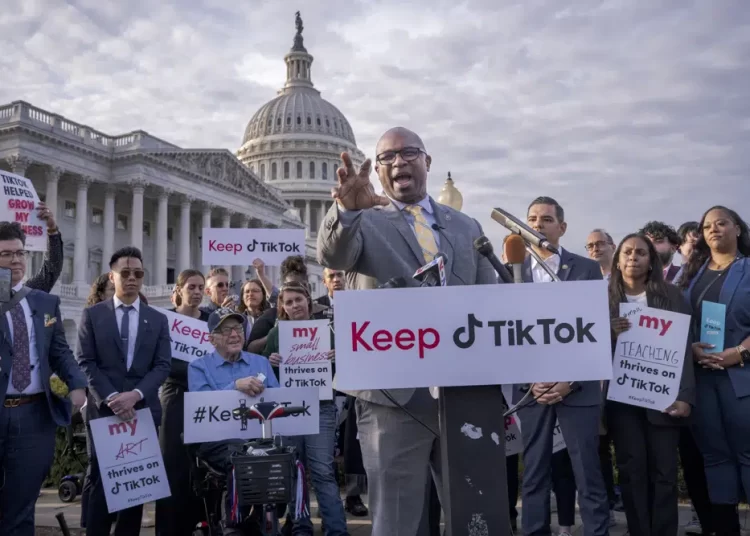WASHINGTON — Rep. Jeff Jackson of North Carolina has used it to explain the complex fight over raising the debt limit. Rep. Robert Garcia of California has used it to engage with members of the LGBTQ+ community. And Sen. Bob Casey of Pennsylvania has used it to give an overview of Election Day results.
As pressure against TikTok mounts in Washington, the more than two dozen members of Congress — all Democrats — who are active on the social media platform are being pushed by their colleagues to stop using it. Many defend their presence on the platform, saying they have a responsibility as public officials to meet Americans where they are — and more than 150 million are on TikTok.
“I’m sensitive to the ban and recognize some of the security implications. But there is no more robust and expeditious way to reach young people in the United States of America than TikTok,” Democratic Rep. Dean Phillips of Minnesota told The Associated Press.
Yet the lawmakers active on TikTok remain a distinct minority. Most in Congress are in favor of limiting the app, forcing a sale to remove connections to China or even banning it outright. The U.S. armed forces and more than half of U.S. states have already banned the app from official devices, as has the federal government. Similar bans have been imposed in Denmark, Canada, Great Britain and New Zealand, as well as the European Union.
Criticism of TikTok reached a new level last week as CEO Shou Zi Chew testified for more than six hours at a contentious hearing in the House. Lawmakers grilled Chew about the implications of the app for America’s national security and the effect on the mental health of its users. And the tough questions came from both sides of the aisle, as Republicans and Democrats alike pressed Chew about TikTok’s content moderation practices, its ability to shield American data from Beijing and its spying on journalists.
“I’ve got to hand it to you,” said Rep. August Pfluger, R-Texas, as members questioned Chew over data security and harmful content. “You’ve actually done something that in the last three to four years has not happened except for the exception of maybe (Russian President) Vladimir Putin. You have unified Republicans and Democrats.”
While the hearing made plain that lawmakers view TikTok as a threat, their lack of first-hand experience with the app was apparent at times. Some made inaccurate and head-scratching comments, seemingly not understanding how TikTok connects to a home Wi-Fi router or how it moderates illicit content.
Rep. Mark Pocan, D-Wis., who is active on the app and opposes a nationwide ban, called the hearing “cringeworthy.”
“It was just so painful to watch,” he told the AP on Friday. “And it just shows the real problem is Congress doesn’t have a lot of expertise, whether it be social media or, for that matter, more importantly, technology.”
Garcia, who said he uses TikTok more as a consumer, said most of his colleagues who are proposing a nationwide ban told him they had never used the app. “It gets hard to understand if you’re not actually on it,” the freshman Democrat said. “And at the end of the day, a lot of TikTok is harmless people dancing and funny videos.”






Discussion about this post